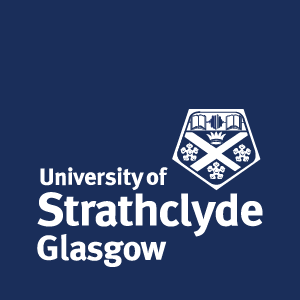The JED-AI research team at the University of Strathclyde comprises two academics—Prof. Lina Stankovic and Prof. Vladimir Stankovic—and two postdoctoral researchers, Dr. Apostolos Vavouris and Dr. Djordje Batic. The team focuses on empowering households—and other stakeholders such as farmers—to benefit from demand flexibility services. Specifically, they investigate how AI can support fair and equitable participation in demand flexibility and other net-zero initiatives.
This PhD placement builds on the UKRI-funded cross-council project JED-AI, which brings together interdisciplinary teams from the University of Strathclyde (coordinator; engineering team), the University of Oxford, and the University of East Anglia (social sciences), in collaboration with project partners Energy Systems Catapult and Hugo Technologies. The JED-AI project explores the integration of engineering, energy systems, and AI research with social science perspectives on a just and inclusive energy transition. A key focus is ensuring that emerging demand flexibility services are equitable and accessible—particularly for vulnerable and traditionally marginalised populations.
Project Focus
The proposed PhD placement will investigate how different population groups engage with AI-driven automation in the context of dynamic energy tariffs. Specifically, the research will explore the social and behavioural dimensions of household acceptance of AI-based systems that recommend or automate energy supplier switching, for example, on a daily, weekly, or monthly basis.
The student will examine:
- Barriers and motivators influencing household decisions to adopt AI-driven dynamic tariffs
- The social and geographical factors shaping engagement
- The impact of such systems on household dynamics and sustainable living practices
While the engineering team at Strathclyde will develop the AI recommendation systems and provide both quantitative and some qualitative data, the student will take the lead in designing and implementing a qualitative research methodology to address the following key questions:
Research Questions
- To what extent are different social groups willing to accept AI-driven dynamic tariff recommendations?
- What are the primary reasons for accepting or rejecting such recommendations?
- How willing are different groups to share control of tariff switching with an AI system (ranging from full automation to manual review or complete rejection)?
- What changes—if any—do dynamic tariffs introduce within households across different social groups?
- What mechanisms can be developed to encourage broader engagement with dynamic tariffs?
- How can AI-based dynamic tariff systems be designed to be more inclusive and socially just?
Expected Student Outputs
By the end of the placement, the student is expected to deliver:
- a) A literature review on AI adoption and social equity in demand flexibility services [optional, updating existing reviews]
- b) A qualitative research design, including interview and survey protocols and ethical considerations.
- c) A dataset of qualitative insights gathered from interviews or surveys with diverse household participants.
- d) A thematic analysis of the data, highlighting key patterns in engagement, resistance, and household impact.
- e) A short report, presentation or workshop to share findings with project partners and stakeholders that can be used towards an academic paper summarizing findings and offering design recommendations for inclusive AI-driven energy services.




